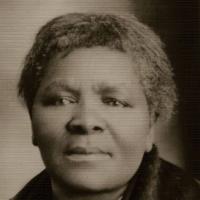Today in Kimberley's History
|
|
|
|
.
|
First Women Anti-Pass Campaign starts - 1913
The June 1913 anti-pass campaign was probably the first recorded incidence of protest by women against the Union government. About 700 women marched to the Bloemfontein City Council in the Orange Free State to petition the mayor. The Orange Free State was the only province in which passes were stringently enforced to control the movement of women residing and working in towns in large numbers. The Campaign gained momentum and spread to other areas in Bloemfontein. 34 women were arrested and convicted for not having passes. The direct result of this campaign was the establishment of the Bantu Women's League under the leadership of Charlotte Manye Maxeke. The Bantu Women's League was adopted and relaunched by the African National Congress as its Women's League structure in the 1940s. |
The SA Constitutional Court abolishes the death penalty - 1995
On 6 June 1995 a historic resolution was taken by the Constitutional Court to abolish the death penalty. The court ruled that capital punishment, as provided for under the Criminal Procedure Act, was in conflict with the country's 1994 constitution. The ruling did not apply, however, to the crime of treason committed in wartime. The Court ordered, with immediate effect, that "the State and all its organs are forbidden to execute any person already sentenced to death under any provisions thus declared to be invalid." The ruling followed the Constitutional Court's hearing on the death penalty which took place in February 1995. Until the use of the death penalty was suspended in February 1990, South Africa had one of the highest rates of judicial executions in the world.
On 6 June 1995 a historic resolution was taken by the Constitutional Court to abolish the death penalty. The court ruled that capital punishment, as provided for under the Criminal Procedure Act, was in conflict with the country's 1994 constitution. The ruling did not apply, however, to the crime of treason committed in wartime. The Court ordered, with immediate effect, that "the State and all its organs are forbidden to execute any person already sentenced to death under any provisions thus declared to be invalid." The ruling followed the Constitutional Court's hearing on the death penalty which took place in February 1995. Until the use of the death penalty was suspended in February 1990, South Africa had one of the highest rates of judicial executions in the world.

